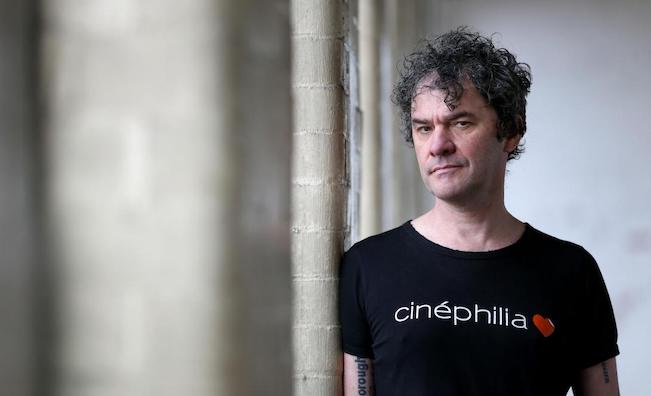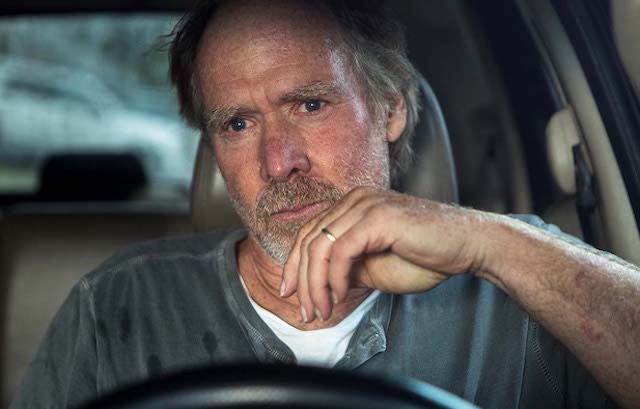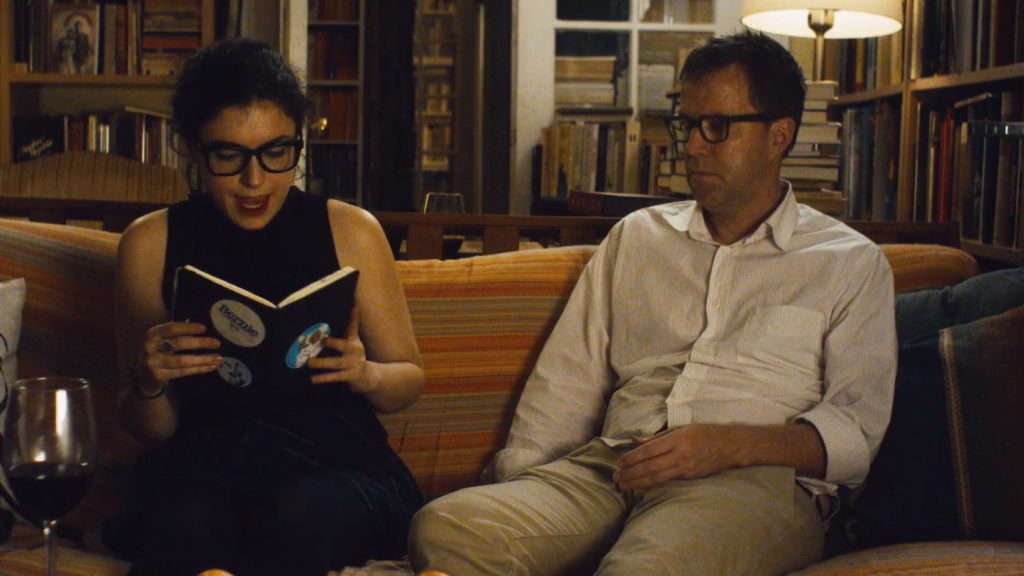 The setup of “Obvious Child” may remind you a bit of “Seinfeld” — a Jewish New York comedian turns the mundane into standup material. In this case, however, the comic is a young Brooklyn woman named Donna Stern as played by relative newcomer Jenny Slate. Donna’s material about abortion isn’t exactly gold though it’s an improvement over her usual set of unfunny and icky bodily function jokes. [The best joke in the entire film is actually delivered by another comic: how his dad reminds him of both Bill Cosby and Richard Pryor.] She’s already lost one boyfriend due to her onstage over-sharing, her job at the anti-imperialist, non-repressive non-colonialist bookstore is about to end and her academic mom’s idea of advice comes in the form of a spreadsheet. Attention from a very nice though not-her-type straight arrow turns into a one-night stand that leads to her unplanned pregnancy.
The setup of “Obvious Child” may remind you a bit of “Seinfeld” — a Jewish New York comedian turns the mundane into standup material. In this case, however, the comic is a young Brooklyn woman named Donna Stern as played by relative newcomer Jenny Slate. Donna’s material about abortion isn’t exactly gold though it’s an improvement over her usual set of unfunny and icky bodily function jokes. [The best joke in the entire film is actually delivered by another comic: how his dad reminds him of both Bill Cosby and Richard Pryor.] She’s already lost one boyfriend due to her onstage over-sharing, her job at the anti-imperialist, non-repressive non-colonialist bookstore is about to end and her academic mom’s idea of advice comes in the form of a spreadsheet. Attention from a very nice though not-her-type straight arrow turns into a one-night stand that leads to her unplanned pregnancy.
The main business of the film—which sometimes threatens to be more cute than funny but ultimately won me over—is about Donna’s eventual thaw to the goy (a winning performance by “The Office”‘s Jake Lacy). A rom-com whose love story takes off post-abortion probably won’t make it to many pro-lifer Netflix queues but others will appreciate the delicate balance of humor and emotion in this hugely likable film. It doesn’t hurt that the film sports a great ensemble cast including Richard Kind and Polly Draper as Donna’s divorced parents, David Cross as a creepy comedy club owner, and Gaby Hoffman as her roomie. Confidently directed by Gillian Robespierre, this first feature premiered at Sundance earlier this year and is the centerpiece of the upcoming New Director’s/New Films festival at Lincoln Center. While it’s hard to see much of a future for Donna Stern, I predict big things for Slate and Robespierre.
 Also in New Director’s/New Films (March 19—30) is the French avant-garde horror film “The Strange Color of Your Body’s Tears.” Directors Helene Cattet’s and Bruno Forzani’s second giallo-inspired feature after 2010’s “Amer” belongs more solidly in the avant-garde than the horror genre (though there is blood, gore and shocks aplenty). Set in an art-nouveau apartment building in Brussels, the story is simple: Dan (Klaus Tange) comes home to find his apartment locked from the inside, then discovers that his wife is missing. The search for her becomes more about a psychotic meditation on the disrupted interiority of both fleshy and plaster surfaces than it is a murder mystery. For Freudian-minded critics, it can also be interpreted as a male adolescent’s fearful fantasies about female genitalia and menstruation. Sounds academic and stuffy but that it is not! Instead, it’s an assault on the eyes and ears that makes a Gasper Noe film look tame by comparison. Just as you think they are running out of new visual tropes and deconstructive editing techniques, here come even more variations on a form. A Morricone-sampled soundtrack and stunning sound design enliven things. For some this might be unbearable but I found it endlessly fascinating.
Also in New Director’s/New Films (March 19—30) is the French avant-garde horror film “The Strange Color of Your Body’s Tears.” Directors Helene Cattet’s and Bruno Forzani’s second giallo-inspired feature after 2010’s “Amer” belongs more solidly in the avant-garde than the horror genre (though there is blood, gore and shocks aplenty). Set in an art-nouveau apartment building in Brussels, the story is simple: Dan (Klaus Tange) comes home to find his apartment locked from the inside, then discovers that his wife is missing. The search for her becomes more about a psychotic meditation on the disrupted interiority of both fleshy and plaster surfaces than it is a murder mystery. For Freudian-minded critics, it can also be interpreted as a male adolescent’s fearful fantasies about female genitalia and menstruation. Sounds academic and stuffy but that it is not! Instead, it’s an assault on the eyes and ears that makes a Gasper Noe film look tame by comparison. Just as you think they are running out of new visual tropes and deconstructive editing techniques, here come even more variations on a form. A Morricone-sampled soundtrack and stunning sound design enliven things. For some this might be unbearable but I found it endlessly fascinating.
There have always been young people but did you know that the term teenager wasn’t coined until 1945? Matt Wolf’s new documentary “Teenage” looks at youth culture movements in the U.S., England and Germany in the first half of the 20th century: flappers, the bright young people, swing kids, sub-debs, even Hitler Youth. Based on Jon Savage’s 2007 book “Teenage: The Creation of Youth Culture 1875-1945,” it’s a rich social portrait of the variety and evolution of teenage culture between the abolition of child labor and the targeting of youth as a marketing demographic. It also has a unique, poetic form, composed entirely of archival footage mixed carefully with recreated footage and narration by Jena Malone and others, accompanied by a dreamy soundtrack created by Deerhunter member Bradford Cox. Wolf’s previous documentary, “Wild Combination” was a portrait of the late experimental musician Arthur Russell. It was good but this is a major work, one that urges us to re-think how youth is addressed, exploited and defined. Opens March 14 in NYC; distributed by Oscilloscope.
Listen to Adam Schartoff’s interview with director Matt Wolf on Filmwax Radio.





